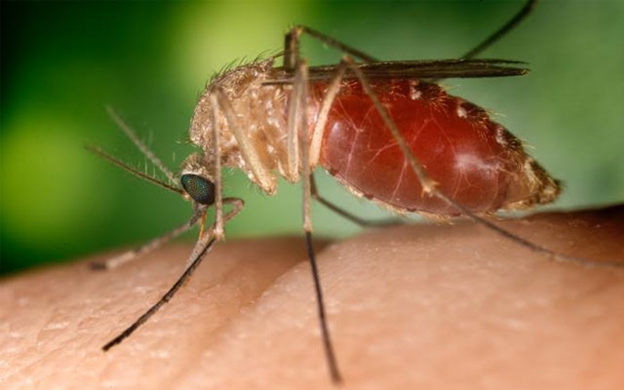
Mosquito-spread encephalitis found in Wisconsin horses
Eastern equine encephalitis (EEE) virus, which is transmitted by mosquitos, is fatal as often as 90 percent of the time in horses.
It can also be transmitted to humans. Such cases are rare, but infections cause death in a third of human patients and severe brain damage in many survivors.
A wet and warm summer — much like last year, when EEE virus infected 18 horses in 11 Wisconsin counties — makes for good mosquito habitat and conditions conducive to the spread of viruses like EEE and West Nile virus.
“We usually watch this virus migrate north with the birds and the mosquitos,” says Keith Poulsen, a large animal veterinarian at WVDL. “There haven’t been any human or animal cases yet in neighboring states, so to see these two positive cases today was a surprise.”
Brain tissue collected from the two yearling quarter horses was tested Friday at WVDL. The horses were last vaccinated against EEE in the fall of 2016.
“Horses really should be vaccinated, and I’d recommend that to horse owners in the area where EEE is present,” Poulsen says. “Almost all horses who come to us with the infection have not been vaccinated, or it’s been more than 10 to 12 months since their last vaccination.”
Horses in Wisconsin should be vaccinated in the spring before the start of mosquito season.
The virus circulates between birds and a type of mosquito, Culiseta melanura, that only feeds on birds.
“The problem for horses and humans is what we call a bridge vector,” says Kristen Bernard, a professor of pathobiological sciences in UW–Madison’s School of Veterinary Medicine and an expert in virology and diseases passed between humans and animals. “There are mosquito species that feed on both birds and mammals that can transmit eastern equine encephalitis to horses and people.”
Bernard recommends people in areas where EEE is present apply insect repellent with DEET when they’re outside, and that they try to remove places for mosquitos to breed by eliminating standing water near their homes.
“There are some captive birds, like pheasants or captive cranes, that may also serve as reservoirs for the virus, and people keeping those animals should be aware of EEE,” Bernard says. “But most people are best off just making sure they’re using insect repellant.”
Image: Wikimedia Commons
Support Our Journalism
We cannot do without you.. your contribution supports unbiased journalism
IBNS is not driven by any ism- not wokeism, not racism, not skewed secularism, not hyper right-wing or left liberal ideals, nor by any hardline religious beliefs or hyper nationalism. We want to serve you good old objective news, as they are. We do not judge or preach. We let people decide for themselves. We only try to present factual and well-sourced news.







